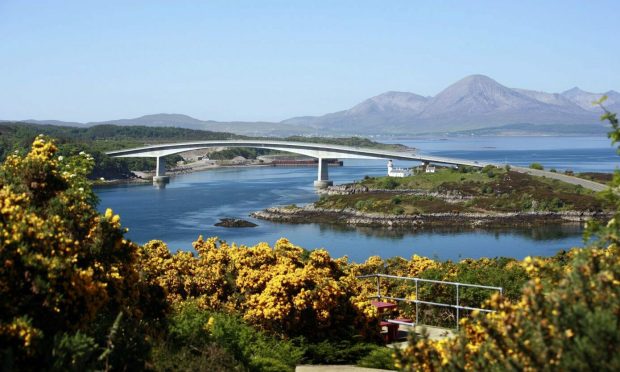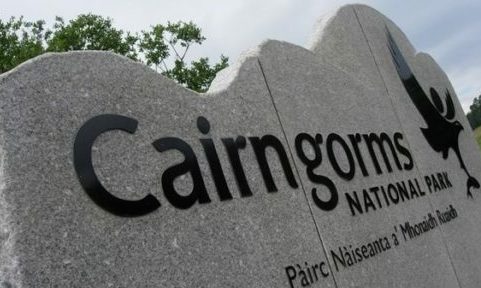Three more areas of the Highlands have decided against a move to become Scotland’s third national park.
Skye and Raasay has decided to withdraw from the process having previously expressed interest in seeking designation.
A community survey in Wester Ross has also come down against pursuing national park status.
And the Affric and Loch Ness area will not be submitting a nomination despite majority backing.
Last week, Ben Wyvis and Glen Affric withdrew its application after those behind the bid said the speed of the process left people feeling “ambushed” and under-informed.
At least one new national park by 2026
It is 20 years since Scotland’s first national parks in Loch Lomond and the Trossachs and the Cairngorms were established.
The Scottish Government has committed to designating at least one new park in Scotland by 2026.
Communities have until February 29 to submit nominations.
It was decided a Skye bid would not go ahead after Portree and Braes Trust and Broadford and Strath Community Company met Highland councillors from Skye to discuss an interim report on consultations.
A statement from the meeting said: “Early indications are that the majority of those who participated in the consultation are not in favour of national park status for Ward 10 (Skye) and at this stage there are no plans to submit a formal application.
“The final report will be available to the public when completed.”
There was opposition to the bid going ahead with one National Farmers Union Scotland (NFUS) meeting in Portree voting against the idea.
Wester Ross No vote
Meanwhile, 55.9% of people in a Wester Ross survey recommended that no nomination for park status be put forward.
The survey, carried out by community-led charity Wester Ross Biosphere, had 287 responses with 32.2% voting Yes and 11.9% were unsure.
The charity said: “There is not sufficient evidence to demonstrate that communities find value in pursuing national park status.
“We recognise that the sample size was small, and the statutory timeline set out for consultation was challenging.
“However, we think it is important to respect the majority of those who were able to respond.”
Concerns raised about designation included an increase in visitor numbers, more bureaucracy and barriers to land management.
An increase in house prices, less local empowerment and uncertainty over the park boundary were among other issues raised.
Strathglass Community Council, which led the Affric and Loch Ness process, decided not to proceed following a community consultation.
It attracted 405 responses with 50.37% supporting a bid, 41.23% opposed and 7.9% unsure.
But views in postcode IV4, which incorporates the community council area, was split 50-50.
Supporters cited potential for environmental protection and visitor management.
Opponents had concerns over potential impact on farmers and crofters as well as increases in visitor numbers and property prices.
Concerns over house prices and visitor pressure
Ben Wyvis and Glen Affric withdrew its application last week.
A survey and consultation sessions showed the area was split 50-50 on seeking designation.
Those opposed to a new national park included farmers, crofters and landowners.
They felt it would bring new red tape and a new layer of governance and environmental demands on land managers.
It was also felt a new park would mean more visitor pressure in an area where facilities are already stretched.
House prices would also rise and affordable housing for local families would become harder to find.
In addition, many felt designation would prioritise biodiversity and nature restoration ahead of rural livelihoods.
Those behind the bid said there was a danger of a new national park becoming a “wedge issue”, in the area and across rural Scotland and did not want to contribute to this split.
It leaves two places in the Highlands and Islands still in the running – Lochaber and Loch Awe.
National parks ‘should bring positive benefits to the environment and economy’
Ministers say they will only designate one or more areas in response to community demand.
They say national parks should bring positive benefits to the environment and economy by supporting progressive development.
Last month, farmers and crofters from Badenoch and Strathspey held a protest outside the Cairngorms National Park Authority’s headquarters saying they are not being listened to.




Conversation